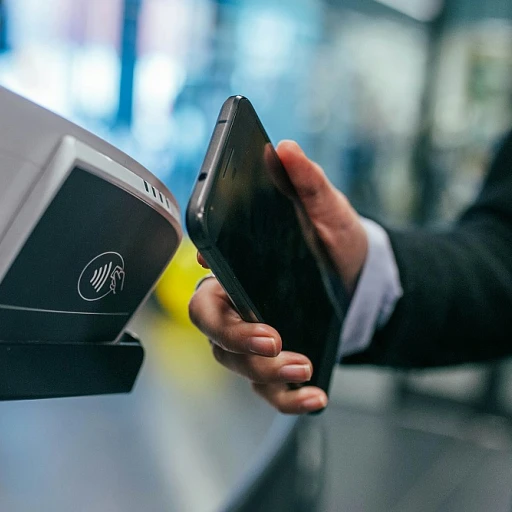
Understanding the Brazilian Market Dynamics
{"The Essence of Brazil's Economic Landscape
": "Engaging with the venture capital landscape in Brazil requires a nuanced understanding of the country's economic intricacies. As one of the largest economies in Latin America, Brazil boasts a unique market dynamic that has captured the attention of global investors, particularly in rapidly evolving sectors such as software, services, and energy. The country’s economy, often subject to shifts in the global and regional economic climates, influences the valuation of startups and companies operating within its borders, dictating their growth trajectory and potential appeal to venture capital.","The Growth Engines Driving Market Dynamics
": "São Paulo stands as the nucleus of Brazil’s venture capital activity, renowned for its concentration of innovative startups and dynamic investment funds. This bustling metropolis acts as both a magnet and a breeding ground for ambitious ventures, particularly in early-stage and pre-seed phases. Fueled by a vibrant mix of technologies, particularly artificial intelligence and financial services, the competitive landscape sees constant evolution, as companies vie for capital and equity contributions from local and international investors alike.","Key Economic Indicators and Influences
": "Brazil’s public and private sectors both play critical roles in shaping the venture capital environment. Increased focuses on infrastructure development, real estate projects, and sustainable energy sources propel significant movement within the venture capital and private equity scenes. As these sectors continue to evolve, they invariably influence investment strategies, financial management practices, and corporate development endeavors. For investors, understanding the impact of the BRL exchange rate and existing economic policies is crucial when considering long-term investments in this market.","The Role of Investment Summits in Brazil
": "Events such as the South Summit Brazil offer vital platforms for stakeholders to explore potential investment opportunities and engage with emerging trends. These gatherings often highlight crucial insights into the evolving landscape, providing invaluable learnings for investors eyeing both immediate and future prospects in Brazil's venture capital ecosystem.Key Players in the Brazilian VC Scene
The Prominent Figures in Brazil's Venture Landscape
Brazil's venture capital scene has become a vibrant tapestry woven with a mix of global and local players. The prominence of investment banking and private equity firms in the region reflects a growing interest in exploring lucrative opportunities. The city of São Paulo stands at the epicenter of this venture activity, housing a multitude of venture capital firms that actively seek to partner with startups exhibiting high growth potential. Recognized financial services giants, both from Latin America and global arenas, regularly participate in substantial funding rounds. These entities bring extensive experience in financial management and corporate development, contributing to the capitalization of emerging companies. Moreover, investment funds focused on sectors like real estate, software services, and renewable energy play a pivotal role in shaping the Brazilian market structure. Key players such as leading private equity groups often invest through various strategic means, whether pre-seed or early-stage funding, capital infusion in established enterprises, or seeking equity stakes in promising startups. Noteworthy is the participation of software and service providers that inject capital, elevating valuation multiples and ensuring the companies can compete on international stages. Further enhancing the competitive landscape are innovation summits, such as the South Summit and Summit Brazil, which present platforms for networking and the showcasing of young enterprises. These events, akin to global showcases, cultivate relationships and collaborations, often leading to significant investment deals. The competitive landscape in Brazil is by no means static. With a clear view towards future trends, companies leverage advancements in fields like artificial intelligence and digital transformation to gain a competitive edge. The growing appetite for startups in niches such as financial services and the significant role of venture capital firms underline a dynamic environment rich with both competition and cooperation. In this intricate web of capital, competition, and collaboration, identifying suitable partners requires strategic alliance exploration. For deeper insights into how such alliances can be structured, check out Exploring Strategic Alliances with Development Partners International.Challenges and Opportunities for Startups
Overcoming Hurdles and Leveraging Opportunities in Brazil
Navigating the startup ecosystem in Brazil requires a strategic blend of insight and adaptability. Entrepreneurs often find themselves in a competitive landscape where access to venture capital is pivotal. Understanding the unique challenges faced by startups in Brazil can illuminate potential avenues for growth and success.Brazilian startups face several challenges, primarily in scaling and valuation due to fluctuating market conditions. Global and local pressures impact how venture capital perceives these startups' long-term viability. Accessing the right resources, whether financial management, software development, or other services, becomes essential.
Gateway to Growth: Overcoming Financial Barriers
Access to capital is a significant hurdle for many early-stage companies. Investment funds, often wary of economic instability, require startups to demonstrate robust valuation metrics that reflect their potential in the Latin America market. Attracting investments often means showcasing a unique view—innovative solutions, particularly in sectors like financial services and artificial intelligence, can help differentiate a Brazilian startup from its peers.
Sao Paulo remains a bustling hub for startup activity. However, securing private equity and public investment requires comprehensive knowledge of the local and international financial landscape. This is where strategic alliances with service providers and investment banks become crucial, offering valuable insights into public markets and enabling startups to navigate the global stage more effectively.
Seizing Opportunities in a Diverse Market
Brazil's diverse industry sectors present varied opportunities, with energy and real estate often garnering attention from venture capitalists. Moreover, the emerging trend of focusing on sustainable and renewable solutions is becoming an attractive proposition for investors who prioritize long-term impact.Participation in events like the South Summit or Summit Brazil can provide startups the exposure necessary to elevate their standing in the competitive ecosystem. These platforms provide opportunities for networking, presenting innovative ideas, and engaging in pivotal startup competitions that can fast-track a company's growth trajectory.
For startups in Brazil, leveraging global insights and adapting to local dynamics is crucial. To delve deeper into understanding challenges in different regions, see how Vietnam's venture capital landscape presents its own unique opportunities.
Strategic Approaches for Attracting Investment
Positioning Your Startup for Maximum Appeal
Successfully attracting venture capital investment in Brazil requires a strategic approach that aligns with the unique market dynamics of the region. Given the competitive nature of the Brazilian venture capital scene, startups must distinguish themselves to catch the eye of potential investors. First, a clear understanding of your company's value proposition is essential. Startups should be prepared to effectively communicate how they solve a problem or address a market need. This includes showcasing the potential for growth and scalability in both the local and global markets. It's vital for a startup to demonstrate why it stands out among its competitors in the bustling cities of São Paulo and across Latin America. Moreover, crafting a compelling pitch can significantly influence your success in securing capital. This involves articulating not just the business model and product offerings, but also showcasing the management team's expertise and long-term vision. Brazilian investors often place a great emphasis on the leadership's ability to drive corporate development and innovation, especially in emerging sectors such as artificial intelligence, renewable energy, and sophisticated software services. Financial health is another critical factor. Investors are keen to see solid financial management practices in place, including a robust set of financial projections and realistic valuation expectations. Transparency, especially when dealing in BRL (Brazilian Real) transactions, and clear documentation can build investor trust and confidence in your proposition. Historically, areas such as fintech, real estate, and public and private equity markets have been focal points for capital infusion. Startups operating in these sectors can capitalize on the established interest. Additionally, there's growing investor enthusiasm for innovative platforms that integrate effective services harnessing technology and artificial intelligence, particularly those that offer unique solutions tailored to the local and wider Latin American context. It's also beneficial to participate in events like the South Summit and other startup competitions in Brazil. These gatherings not only provide visibility but also offer networking opportunities with key players and potential investors in the Brazilian VC landscape. Finally, understanding the strategic needs of investors is invaluable. Investors will look for alignment between their growth strategies and your startup's objectives. Thus, embedding strategic flexibility within your operational framework can make your company a more attractive investment opportunity, enhancing the chances of securing funding from both local and global venture capital funds.Regulatory Environment and Its Impact
The Regulatory Landscape and Its Effects on Startups
Navigating the regulatory environment is crucial for startups in Brazil seeking venture capital. A clear understanding of the nation's legal framework can significantly influence the success of raising capital and scaling operations. Firstly, it's important to acknowledge the various bodies governing financial transactions and investments. These regulatory entities ensure compliance and fair practices but may introduce complexities, especially for emerging businesses.- The CVM: The Brazilian Securities and Exchange Commission plays a vital role in overseeing public ventures and ensures transparency in operations—critical for startups considering public equity.
- Central Bank of Brazil: Manages monetary stability, impacting financial services, currency exchanges, and investment flows in BRL, which are pivotal in maintaining sustainable capital growth.
- Industry-Specific Regulations: Different sectors such as real estate and energy demand tailored compliance, influencing companies differently. Tech-driven ventures, including software and artificial intelligence firms, must keep abreast of evolving data protection laws.



-large-teaser.webp)









